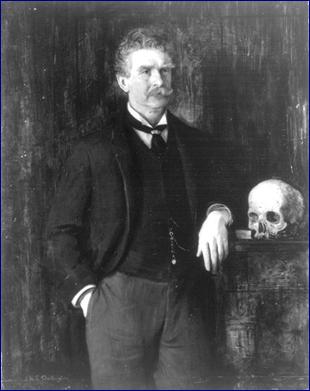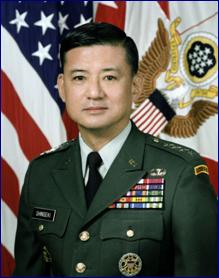III. Into the Fray
either log in or click here to purchase.
Log in here to access video.
Haven't purchased Eye of the Storm Leadership?
Starting Point / The Mugwump Connection
The impulse to manage conflict constructively goes back 40,000 years and spans 4,000 cultures and language groups. It runs parallel to our deepest destructive impulses. Across time and distance, biological necessity and social ingenuity have created artful political interventions in conflicts, among them, Hawaiian Ho’oponopono, the Leopard Chief practices of central Africa, the Rabbinic interventions of Central Europe, Afghanistan’s Loya Jirga procedures, the disentangling ceremonies of Melanesia, the peace pipe rituals of Native Americans, the Yoriai tradition of Japan, and the song contests of certain Eskimo peoples.
 Satellite Image of Papua New Guinea. Credit: Wikimedia Commons.
Satellite Image of Papua New Guinea. Credit: Wikimedia Commons.You might think of the Big Man as a “mugwump,� a term that dates back to the U.S. election of 1884. That was the year when a reform-minded faction of the Republican Party led by Theodore Roosevelt, Henry Cabot Lodge, and George Curtis refused to support the candidacy of James G. Blaine for the presidency. They strenuously objected to the political patronage tradition and the long running spoils system. Instead of lining up behind Blaine as they were expected to do, they formed a splinter group which came to be called the mugwumps. Their particular political heresy was supporting a more progressive Democratic candidate, Grover Cleveland, who won the election.
 Ambrose Bierce: Himself a Mugwump. Credit: Wikimedia Commons.
Ambrose Bierce: Himself a Mugwump. Credit: Wikimedia Commons.commentator of the time, described a mugwump as “one of them boys who always has his mug on one side of the political fence and his wump on the other.� And Ambrose Bierce described a mugwump as “one who is afflicted with self-respect and addicted to the vice of independence.�
The most interesting part of the mugwump saga though belongs to the Puritan missionary John Eliot who used it in his translation of the Bible into Algonquian, a Native American language, in 1661 to convey the English words for “duke� and “centurion.� Charles Dana, a 19th century journalist with the New York Sun, seems to have picked up on this. He was the one who popularized the term “mugwump,� also taking it from the Algonquian Indian word “mogkiomp� which means, among other things, “Big Man.� Today, the term is out of fashion, but still signifies a person who acts independently in political conflict.
Mugwumpery requires a different way of thinking, behaving, and engaging. In their independent examination of the Iraq war, James Baker, Lee Hamilton and the other members of the Iraq Study Group became mugwumps for the Bush administration. Lucy Moore from Santa Fe is a mugwump. She brokers difficult meetings between Indian tribes and government agencies. So too are Paul Cosgrave, Sister Marilyn Ross, former U.S. Senator George Mitchell, and Michael Lewis. Paul helped put together a “Liquor Accord� to combat chronic public drunkenness in one community in Sydney. Sister Marilyn of the Sisters of Mercy organized an improbable low-income housing coalition in Omaha. Former Senator George Mitchell helped forge the peace in Ireland. And Michael Lewis helped thousands of black farmers achieve negotiated settlements with the federal government.
If you think you may have mugwump tendencies, take comfort from this: there are more of you around than you might think and you will continue to be one of humanity’s best-kept secrets.

21 Tension
“I leaned into the storm as though my small house had transformed into some blockish barge floundering upon a white and roiling sea. The stovepipe howled. The dog hid. He knew it meant to lure us outside, entice us to have a better look at its magic.� Mark Spragg
 Eric Shinseki, 34th Chief of Staff, U.S. Army, Fired by Donald Rumsfeld. Credit: Wikimedia Commons.
Eric Shinseki, 34th Chief of Staff, U.S. Army, Fired by Donald Rumsfeld. Credit: Wikimedia Commons.
22 Truth
“All great truths begin as blasphemies.� George Bernard Shaw
|
|
This site managed with Dynamic Website Technology
from Mediate.com Products and Services |
